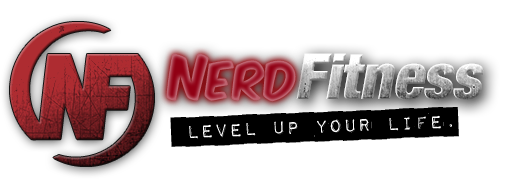-
Posts
1038 -
Joined
-
Last visited
About Hit
-
Rank
Newbie
Character Details
-
Location
Perth
-
Class
monk
-
it's the only thing I miss.
-
wb lupus. Im still here, though I mostly just lurk these days.
- 197 replies
-
- perth
- western australia
-
(and 1 more)
Tagged with:
-
stand up to pee.
-
holy misunderstandings batman! im glad i hadnt posted before that rant kes, i think your argument is a bit more solid now than it has been in previous posts. in that vein, lets get our hands dirty! but first sorta. its more a space where certain assumptions are taken at face value and not questioned - ie trans people are the gender they say they are, gay/bi/lesbian relationships are legitimate expressions of love etc. you can still be offended or uncomfortable within a safe space, its just that those core tenets aren't challenged. the question then is, is this argument challenging the base assumptions of the space? i dont think it is - i dont think kes is asking "are trans women really women" (tho a lot of those arguments sure as fuck came close to asking that in a super terf-y way). i think the question here is "are we not all dysphoric?", and subsequently, what creates and drives that dysphoria to the point where transition is necessary? Then we have the reference to Judith Butler, which furthers this line of thinking. and these are the kinds of challenging questions the we in LGBT community, and even broader society, need to be asking ourselves. but even with this extended argument, the core concept is one of identity. you could see the 'performance' Butler mentions as the way we navigate the space between expectation and presentation. kes implies that when you call gender innate then people will use that to reinforce these performances - that because gender is innate then YOU MUST CONFORM to the gender roles. You must perform the role society has given you. what we see then is that when a persons 'performance' does not meet with expectation or presentation, something has to change. under a patriarchal, heteronormative culture, this often means the performance must change - the person must conform. but enough people are oppressed by this that many people question the social structure and create change in the expectation. through feminism, then the queer movement, and now the trans humanist movement, we are slowly breaking down these expectations, creating new presentations, and using performance to tell our own stories. we are creating identities for ourselves and freeing ourselves to push the boundaries of how we can express those identities. i actually agree with kes that the "born this way" movement is shitty, and trying to force LGBTQ identities into biological fact without exception is damaging. i can also understand ColoQs point about political traction when it comes to the fight for queer rights. mostly i side with shaeon with "does it even matter?". whether you were born queer, developed queer, or simply decided that being queer was right for you, it should not discredit the realness of your identity. This is a difficult conversation to have and not one we should close ourselves off from. However, that means that you have to decide which conversation you are having. Are you having a conversation about biological determinism and the science behind gender? Or are you having a philosophical debate on what it means to be a person and how do your experiences shape your identity? Are we being objective or subjective? And we need to identify what the goal of the conversation is. This is the misunderstanding I mentioned earlier, as it seems everyone wants to stick a little science in their personal anecdotes and call it a day.
-
The same way people have been doing this throughout all of human history - webcomics. http://chaoslife.findchaos.com/agender-agenda
-
yeh i dont really hang on NF anymore, but im still subscribed to this thread so i get notifications when people post.
- 197 replies
-
- perth
- western australia
-
(and 1 more)
Tagged with:
-
Im so sorry you went through that Orchid That sounds like a really rough time but im glad you're alive! I hope things start getting better for you. This seems like the best time to come out. When dysphoria is literally leading you to attempting suicide, it's very easy to show your family and friends how serious it is for you. When you can say "living like this is literally killing me and i need to change", most people will agree with you. There may be some who are like "first you attempt suicide, and now you do put this on us too?" but those people were probably going to be against you no matter what the circumstance. You have to do this for yourself - at the end of the day its your life and your body. If you need to do this now, do it now. Other people will deal.
-
I cant seem to find this persons actual study on "why are gay people even more biphobic than straights?*" but yeh those comments are pretty rank. I feel like its a solidarity issue, the same way some people go off if you even casually suggest that you don't think you were "born that way" or chose to be gay". If you muddy the water then the group will try to distance themselves from you before you damage their cause. Another example of this is "straight-acting-gays" who hang shit on flamboyant gay men, say 'im not proud to be gay, i just am', deride pride parades, and in general try to be the biggest sycophant to heteronormativity that they can. And see how quick I through those members of the community under the bus as well? I don't not use bisexual because im worried about biphobia, it just doesn't describe me well enough. I've never experienced biphobia in real life though, nor had anyone really question my sexuality (except for 'what, so you're into pans?'). Why would you want to call yourself anything but bisexual?
-
I don't the issue is ever with any one movie - its about noticing the trend and saying that trend is bad. In this case, Im not trying to say "this movie is transphobic", its more "the movie industry is often transphobic and the casting decisions in this film reflect that". I think the bechdel test is a good comparison. Like, you cant say any one movie is sexist just because it fails the bechdel test, but you can say the industry has issues with sexism when a large majority fail it. Trans representation is similar. Not casting a trans person in this one role cos its not the directors vision is maybe not such a big deal. But when directors never cast a trans person in any role it shows the industry has an issue with transphobia.
-
Is this the article you're referring to? http://i-d.vice.com/en_gb/article/about-ray-director-explains-why-she-cast-elle-fanning-as-transgender-boy Im still kinda tied on the issue, but i guess i feel that imperfect representation is better than no representation at all. Still, when the director is saying shit like "She's just a girl who is being herself and is chasing the opportunity to start hormone treatment. So to actually use a trans boy was not an option because this isn't what my story is about."" then i start to wonder where the line is between imperfect and problematic. i feel that a lot of the uproar about casting trans people in trans roles comes from wanting to let trans people tell their own stories. not casting trans actors doesn't really say anything about any one movie, but when it happens in EVERY movie then it becomes a major issue.
-
You cant be serious. You have no idea who either of these people are, yet because he scratched someones car you think he should die? Low opinions of people or not, that is hella fucked up. He didn't kick someones puppy, or kidnap their child, he scratched their car. Their fucking car. Who gives a shit.
-
I read a decent explanation of the bi/pan argument recently, which compared it to how rectangles/squares work. So every square is a rectangle, but not every rectangle is a square. In the same way, pan people are bi in a loose sense, but using pan as a label provides more specificity. I feel this description works better if you imagine bisexuality as an umbrella term which emcompasses many polysexual identities under it. the activist in me wants to say "always!" because people should be chill about being asked to identify their gender the same way people are chill about being asked their name. id say to wait until you have a private moment or to only ask when you need to be specific about their gender. "they/them" is a safe bet for when you don't know and don't feel comfortable asking.
-
wait where have i seen that sort of behaviour before... oh right! funny how that works. edit: used your own quote.
-
Yeh how exactly is that different from someone saying "back in my day we didn't have of this homosexual nonsense" ? I get that non-hetero sexualities and non-cis genders can be confusing to those outside the community, but why make a joke out of peoples identities? The only reason I can see is that you think those identities are a joke, and your follow up post provides further evidence to that.



